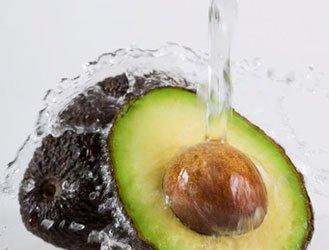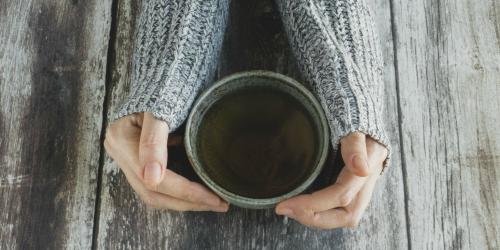What are oxidants?
What are antioxidants?
Can we easily assess its level of oxidative stress?
Are dietary supplements useful?
Is vitamin C a special case?
The 20 most antioxidant foods
Antioxidants are taken alone or mixed?
What are oxidants?
These are toxic molecules, also called free radicals . Free because they miss an electron. They are constantly stabilizing their formula by going to bite an electron in the neighboring cell (including our DNA) which, in turn, turns into a free radical and so on. Because of them, the body oxidizes, that is to say, ages faster. Oxidants are numerous and widespread.
Where do they come from ?
Absolute paradox, the most oxidizing molecule is the one that our life depends on: oxygen. But all pollutants, pesticides, pollution, tobacco smoke, volatile compounds, heavy metals (lead, mercury) ... bring free radicals. Iron is particularly oxidizing : thanks to their rules, women lose a little each month and are therefore better protected than men. But we make our own free radicals during inflammation or stress.
Is stress an oxidizer?
Yes. It plays a major role in oxidation. Ultra-sophisticated people at work have a very specific oxidation: they must protect their heart. For them, a change of diet will be relatively unimportant. This is the stress that must be treated.
Are we equal in the face of oxidants?
No. The internal antioxidant system is genetic ! Some are better equipped to defend their proteins, others their lipids or their DNA. These differences partly explain why some of us are likely to have a heart attack and others will have a lower risk of developing cancer, for example.
What are antioxidants?
These are the antidotes of free radicals . Vitamins (A, C, E), minerals (zinc, selenium), isoflavones, lycopene, lutein, flavonoids, polyphenols, coenzyme Q10, SOD (super oxide dismutase) ... each antioxidant has its function and prevents "its" oxidant from harm. The problem is that our body can not manufacture them, it is obliged to look elsewhere, in the food.
Is our diet sufficient?
No, even if you eat balanced, which is far from always the case! Especially since food is only one protective element among others: the general balance of life (professional tranquility, feeling of having found its place in society, etc.) is largely as important.
Which foods bring the most?
Vegetables . Not only do the plants produce oxygen (highly oxidizing) but, in addition, they are permanently exposed to UV. To survive these attacks from the inside and outside, they "make" thousands of antioxidant molecules .
With 5 fruits and vegetables a day, is it safe?
Unfortunately no. First of all because, concretely, it is difficult to get there for economic reasons, but also practical and sometimes digestive. Then fruits and vegetables are full of pesticides, all very oxidizing! Finally, some antioxidants such as zinc , selenium , essential fatty acids are found in other foods. To bet on plants at the expense of a balanced diet is nonsense. The best advice is to vary your diet , without focusing this or that food.
Can we easily assess its level of oxidative stress?
It's impossible. Certain parameters such as tobacco, stress, a diet low in fruits, vegetables, whole grains, seafood and fish and, moreover, rich in red meat and offal suggest that one does not have his dose. antioxidants . You can also do a dietary survey with the help of a dietician who specializes in antioxidants . But this is just an awareness. If we want to go further, a balance sheet is necessary. Only a blood test can give a real evaluation. The balance sheet also makes it possible to see if the oxidation is rather due to dietary deficiencies in antioxidants or to oxidative aggressions (stress type).
Any oxidative balance is appropriate?
No. We must stick to balance sheets that bring together useful and necessary markers. Dosages of vitamin C or glutathione are indispensable bases. The laboratory must comply with all appropriate precautions (draconian sampling, no vein trauma, transport to -80 ° C to an approved center, etc.). A correct balance costs about 200 € and is not reimbursed by the Social Security, but it can be supported by some mutuals. In addition, we must redo a few months later to verify the relevance of treatment.
Are dietary supplements useful?
In some cases, dietary supplements are essential. In people whose balance sheet reveals deficiencies, but also in those who go through a prolonged difficult period, violent or repetitive, stress, overwork, depression, illness, surgery. In all these situations, the imbalance in antioxidants is inevitable and always ends up altering the state of health.
How long does it improve its antioxidant status?
With adapted food supplements , in 3 to 5 months approximately. All the health parameters are improving at the same time: the risks of developing serious diseases (cancer, cardiovascular disorders) are decreasing and we can actually see a better immunity, fewer outbreaks of herpes, canker sores, a more beautiful skin etc.
Is it reasonable to cumulate food supplements?
In theory, it is not better. But most dietary supplements have nutritional dosages, that is to say very low. However, a low dosage does not mean a lack of effectiveness either: it depends on your needs and the general formula of the product. Their cumulation, if that were to happen, would not put health at risk. Nevertheless, there is no point in taking too many antioxidant supplements . Be careful not to multiply products containing beta carotene if you are a smoker. On the other hand, one can possibly cumulate two food supplements provided that the formulas have nothing to do (for example an anti-fatigue formula based on vitamins ginseng).
What are the dosages to respect?
Do not exceed the RDA (recommended daily allowance). We reassure you, the overdose is almost impossible to achieve given the restrictive regulation applied to food supplements.
Is vitamin C a special case?
She's everyone's friend! Smokers should take one tablet of 200 mg / day, 20 days a month, all year long. But we all need it and, in addition, we do not store it, so we must renew its contributions permanently. However, avoid high doses at once: the more we swallow, the less we absorb. Split the plugs.
Are omega 3 antioxidants?
Absolutely not, on the contrary! Very useful for health, they are recommended but always accompanied by a complete antioxidant formula because they themselves are very fragile. Before you buy Omega 3, make sure the formula has antioxidants at the same time. Better to proceed in two steps: a cure of antioxidants alone, then omega 3 antioxidants.
Food supplements: should we take them in cure or permanently?
With exception, these are cures to "go up" the thresholds. Even if you have to start again a little later ...
To know more
"The Antioxidant Revolution", Dr. Michel Brack , eds. Albin Michel.
"Antioxidants, a practical guide", Danièle Festy , ed. Leduc.S.
The 20 most antioxidant foods
Set Descending Direction ... Prune , Raisin , Blueberry , Blackberry, Garlic, Kale, Strawberry, Raspberry, Spinach, Brussels Sprout, Plum, Broccoli, Beet, Orange, Black Grape, Red Pepper, Cherry, Kiwi, Pink Grapefruit , onion. (Source: US Department of Agriculture.)
Suvimax
"The French Suvimax study lasted 8 years," says Danièle Festy , pharmacist, during which about 6,500 people took an antioxidant food supplement (beta-carotene, vitamins C and E, selenium and zinc) and another 6,500 took a placebo (capsule without active ingredients). At the end of the study, the "supplement" group was in better condition with 31% cancer and 37% fewer deaths. Eloquent results! "
Antioxidants are taken alone or mixed?
Apart from vitamin C , never take an antioxidant alone. Here are the 4 main rules to respect ...
The labels must be perfectly legible, detailed, clear (for example, do not buy on the Internet).
Always take general formulas combining the maximum of vitamins, minerals, etc. The more elements there are, the better. A formula must imperatively contain vitamin C, otherwise it is not a real antioxidant product.
Never take antioxidant specialties bringing copper or iron (both are, on the contrary, very oxidizing).
Never take vitamin E alone, without vitamin C (the second prevents the first to oxidize and become, in turn, oxidizing).
In any case, you will never do anything stupid by taking vitamin C or a polyvalent formula that contains it.
Thanks to Dr. Michel Brack , Director of the Center for Bioclinical Investigations of Oxidative Stress ( www.cisso.info ).




